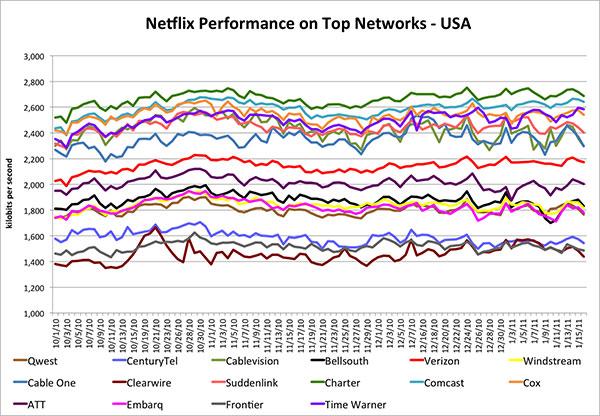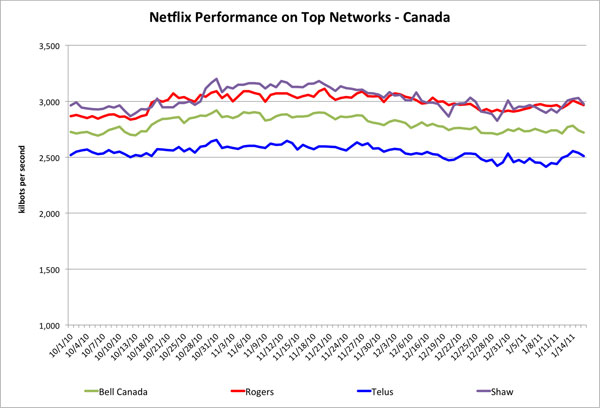Netflix Measures ISP Speeds


As you can see, Charter—my ISP as it turns out—came out on top in the US with an average throughput of 2.667 megabits per second (Mbps), while Shaw was the top Canadian ISP with an average of 3.020Mbps. Interestingly, even the worst Canadian provider, Telus, was much faster at around 2.5Mbps than most of the US ISPs, which bottomed out at around 1.5Mbps. Even more interestingly, Verizon was in a tight race for fourth place with Time Warner and Cablevision; I wonder if Netflix was testing FiOS in that case? If so, speeds around 2.4 to 2.5Mbps seem mighty slow for the fiber-optic service.
According to Florance, Netflix is capable of delivering HD streams at up to 4.8Mbps, considerably faster than any ISP was able to achieve in this test. And he points out that Netflix automatically adjusts its bitrate to the capabilities of the provider and streaming device at any given moment. Of course, the higher the bitrate, the better the image quality—and the less playback must be paused for buffering—but most experts I know say that a minimum of 1Mbps is sufficient for an HD stream.
That may be so, but even 3Mbps is less than a tenth of Blu-ray's maximum bitrate of 48Mbps for audio and video, and it's about a sixth of terrestrial HD's 19Mbps, so don't expect Netflix or any other streamed HD content to look or sound nearly as good as Blu-ray or over-the-air HDTV. As our poll question regarding the convenience of streaming vs. the quality of Blu-ray revealed, a strong majority of UAV readers (61 percent) prefer quality. Still, I suspect that many of them use streaming for more casual viewing, so knowing which ISP delivers the best throughput is important, and Netflix will continue to update its test results monthly.
- Log in or register to post comments

























































